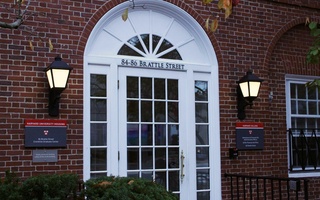The United States Department of Justice has recently threatened to sue Harvard if it does not turn over a document relevant to its current investigation of the University’s consideration of race in its admissions process. Given the ostensibly political nature of the investigation, it appears that the Department plans to very aggressively challenge Harvard’s affirmative action policies—and, consequently, affirmative action policies at universities nationwide. While we hope that Harvard complies with its legal obligations in this investigation, we also expect the University to make a compelling case for how affirmative action positively serves this institution.
There is good reason to believe that the Justice Department’s investigation is politically motivated. It is probable that the front office of the Civil Rights Division of the Justice Department—which is run by political appointees instead of career civil-service lawyers in the Education Opportunities Section—is overseeing the investigation. Furthermore, an attorney representing Harvard has noted that it is “exceptionally unusual” for the Department of Justice to be investigating a complaint that was filed over two years ago.
Moreover, it is possible that the Justice Department’s aggressive probing of Harvard’s admissions practices will indirectly assist the civil lawsuit against Harvard brought by anti-affirmative action group Students for Fair Admissions in 2014. The Justice Department’s escalating and forceful scrutiny of Harvard has all the trappings of a partisan attack on affirmative action policies, and its implications will likely reverberate beyond Harvard to affect schools practicing affirmative action nationwide.
Harvard has cited student privacy concerns in its choice to delay handing over documents to the government. Although it is impossible to tell whether this is a delaying tactic or a legitimate concern—or both—we of course hope that the University fulfills its legal obligations and cooperates with the investigation to the extent that is required by law.
However, the fulfillment of legal obligations and mounting a compelling defense of affirmative action are not mutually exclusive. As we have argued before, affirmative action is important for the University to remain diverse and accessible. Affirmative action at Harvard, and at universities throughout the country, is not perfect, but it serves a critical role in helping students learn from their peers as well as remedying societal inequality. Eliminating it altogether would be devastating.
If the Justice Department ultimately chooses to sue Harvard, or even simply submit a amicus brief arguing against affirmative action, the University must give a strong defense of affirmative action—not only to preserve its own admissions policies, but also similar policies at other schools throughout the country.
This staff editorial solely represents the majority view of The Crimson Editorial Board. It is the product of discussions at regular Editorial Board meetings. In order to ensure the impartiality of our journalism, Crimson editors who choose to opine and vote at these meetings are not involved in the reporting of articles on similar topics.
Read more in Opinion
Embracing the SpectrumRecommended Articles
-
Contextualizing Notions of Fairness in College AdmissionsThere is a significant portion of the Asian community who believes that people like me are getting the upper hand in college admissions.
-
 Justice Department Investigation Spurs Student Opposition
Justice Department Investigation Spurs Student Opposition -
 Students Examine Harvard's Affirmative Action Case
Students Examine Harvard's Affirmative Action Case -
 An Inflection Point: High Stakes as Harvard Admissions Trial Approaches
An Inflection Point: High Stakes as Harvard Admissions Trial Approaches -
 Kavanaugh’s Nomination May Jeopardize Affirmative Action, Experts Say
Kavanaugh’s Nomination May Jeopardize Affirmative Action, Experts Say













